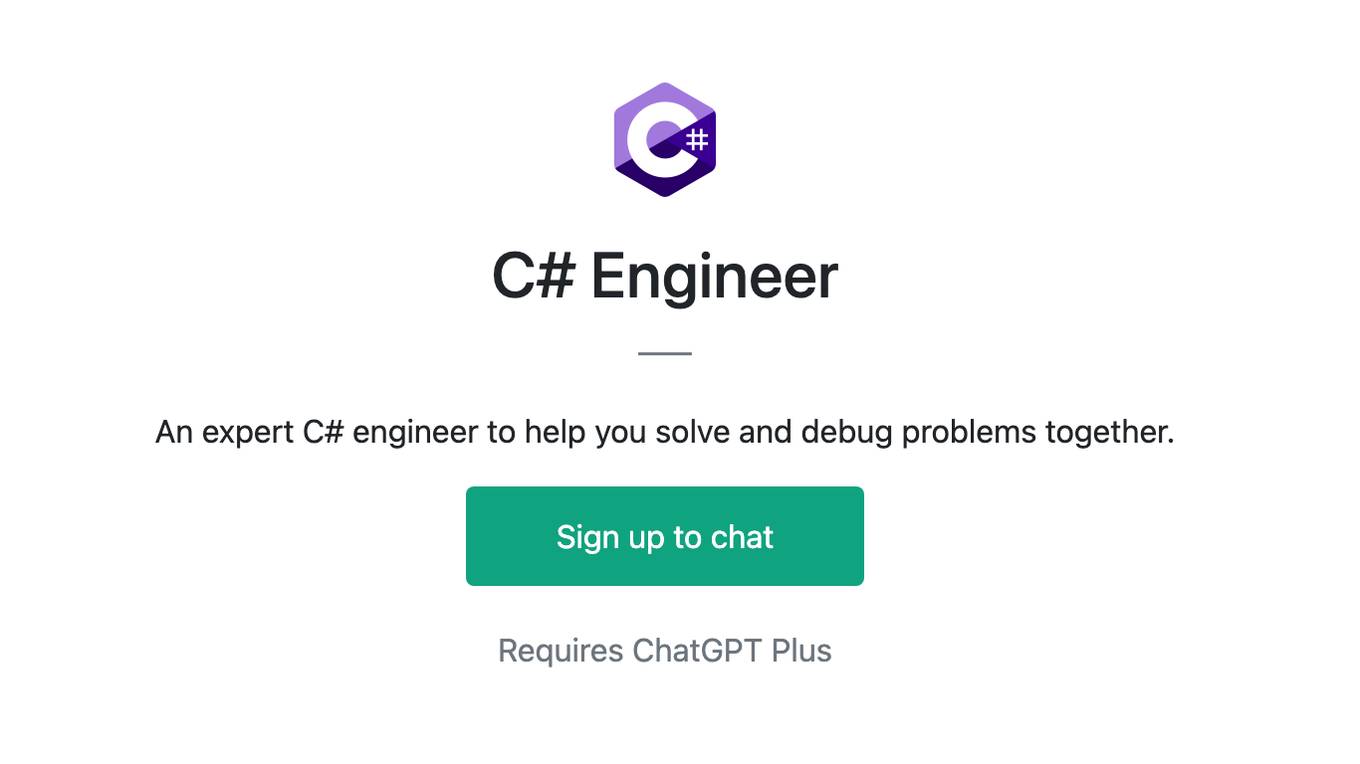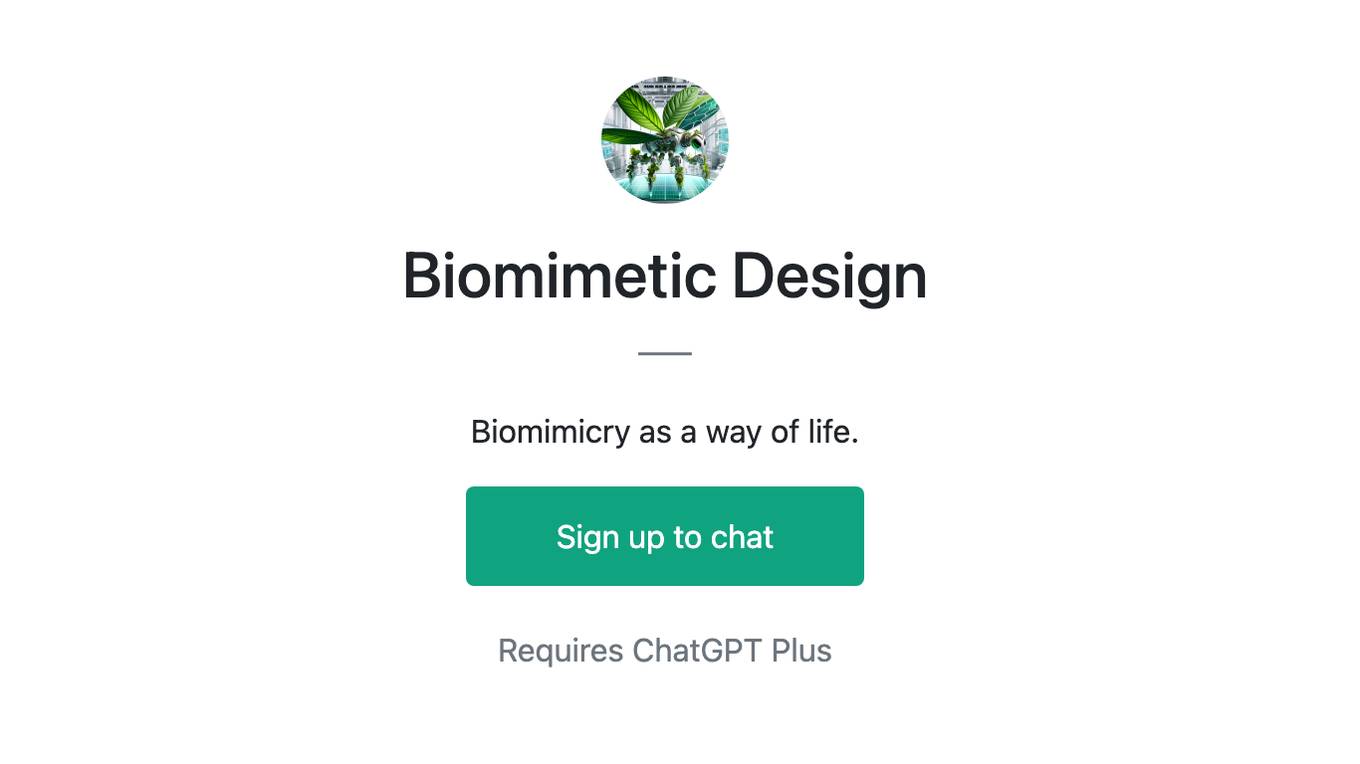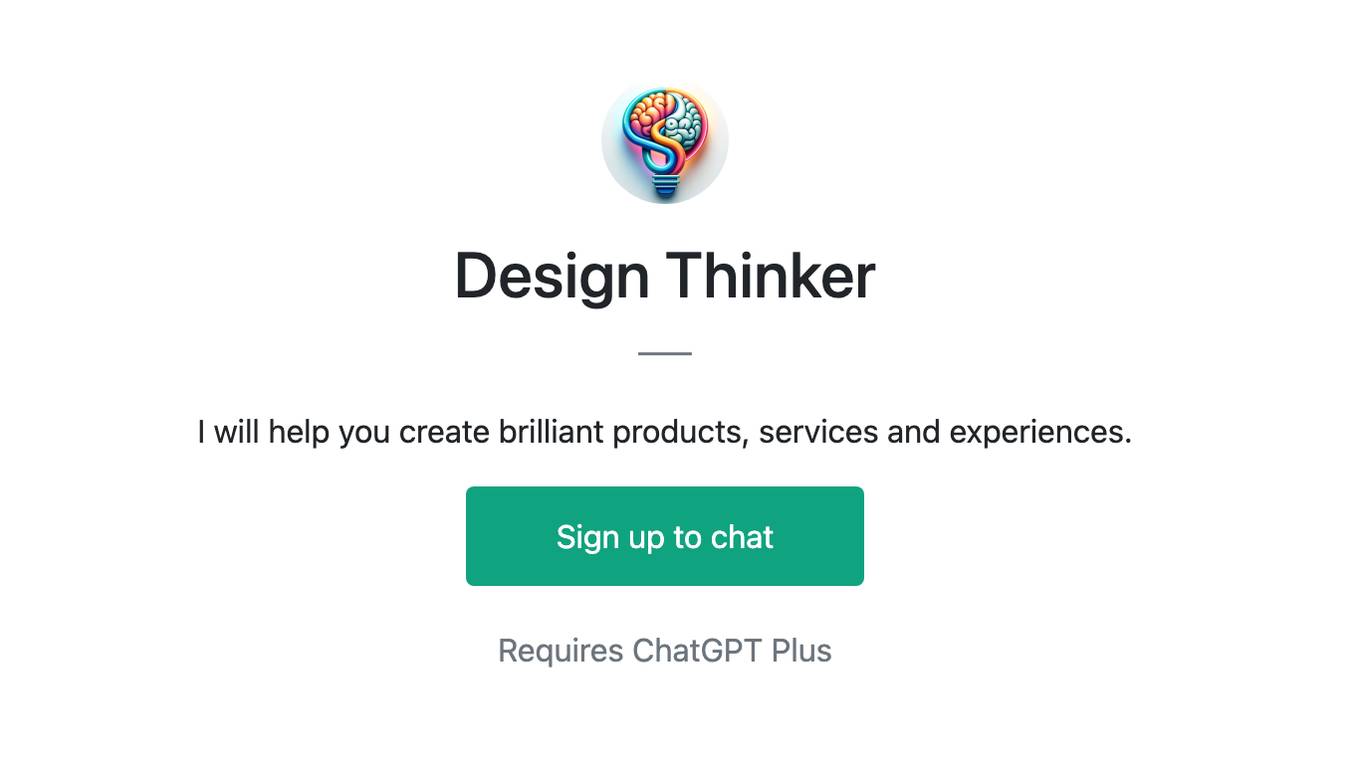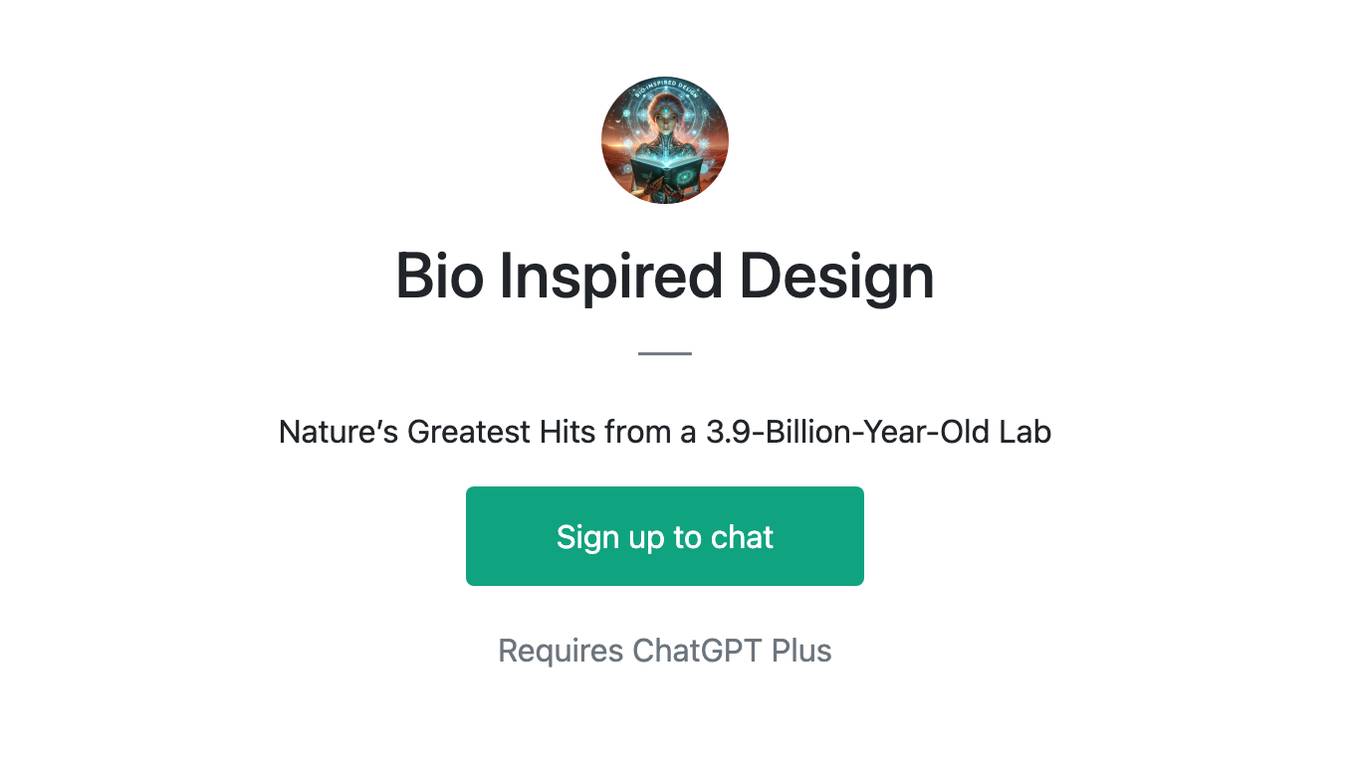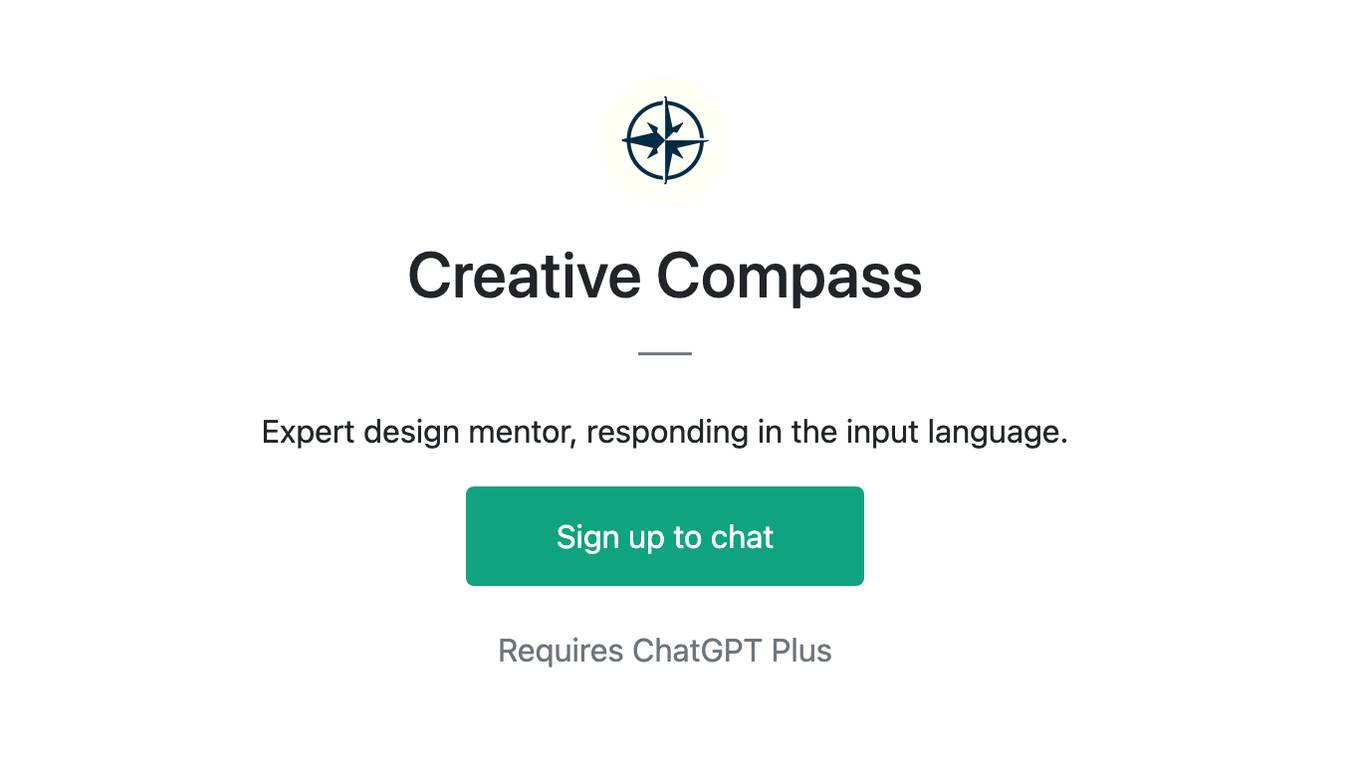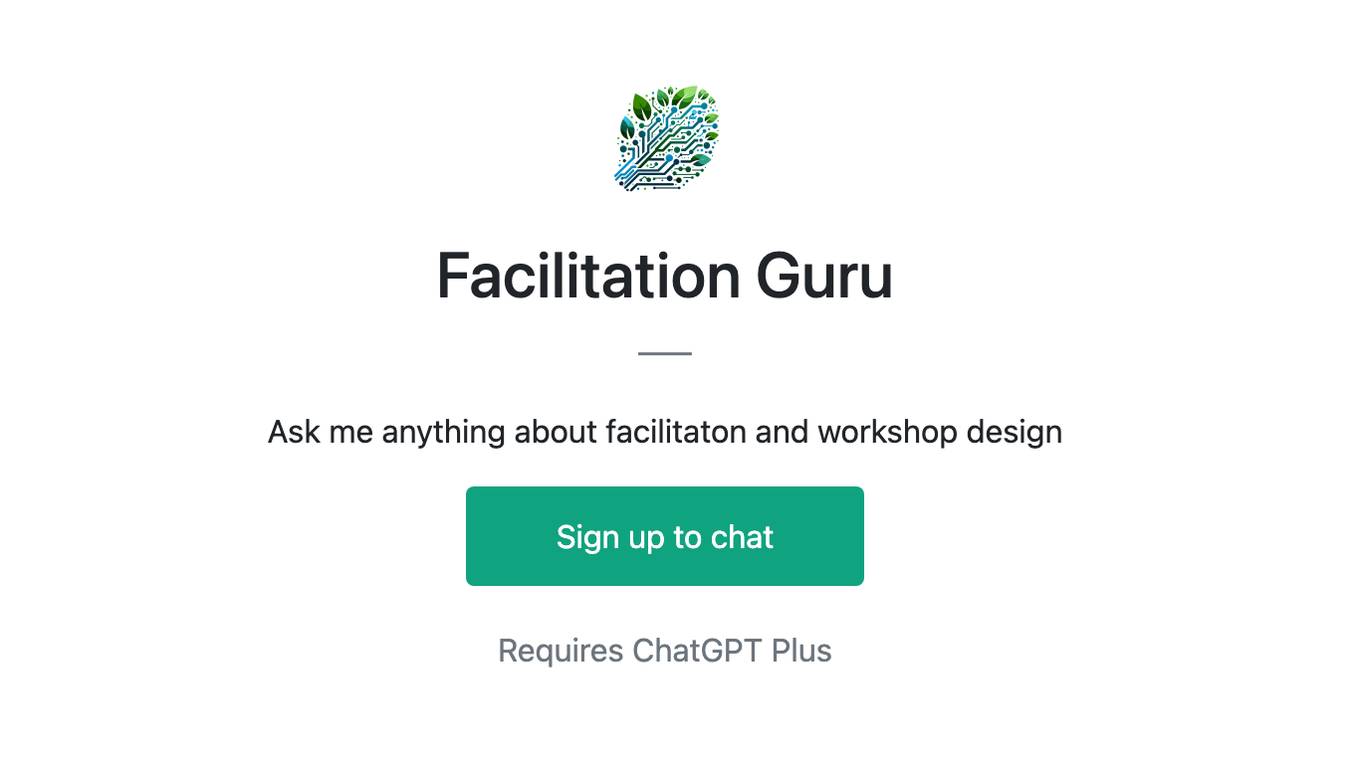Best AI tools for< Solve Design Problems >
20 - AI tool Sites
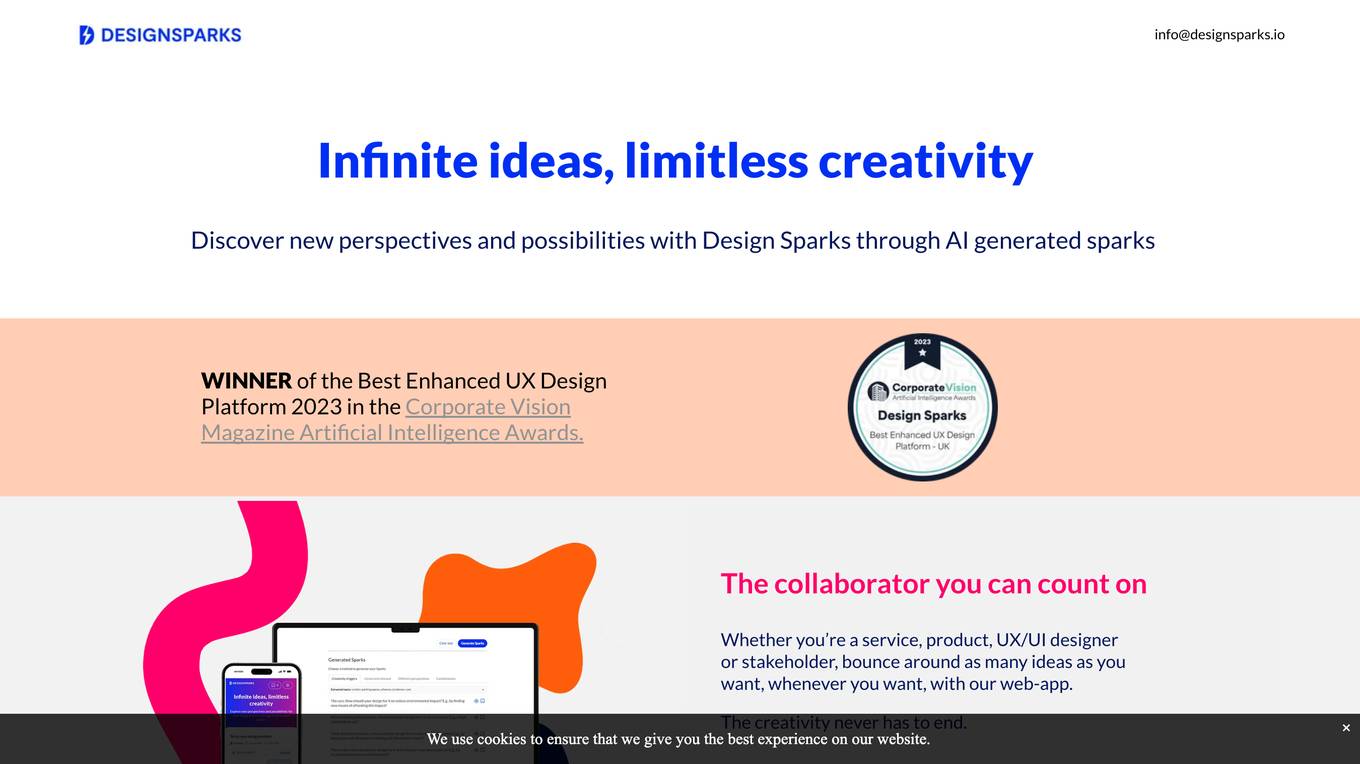
Design Sparks
Design Sparks is an AI-powered creativity tool that helps users generate new ideas and solve design problems. The tool uses a variety of AI techniques, including machine learning and natural language processing, to understand user input and generate relevant ideas. Design Sparks is designed to be used by a wide range of users, from designers and engineers to marketers and business professionals. The tool is easy to use and can be accessed through a web-based interface.
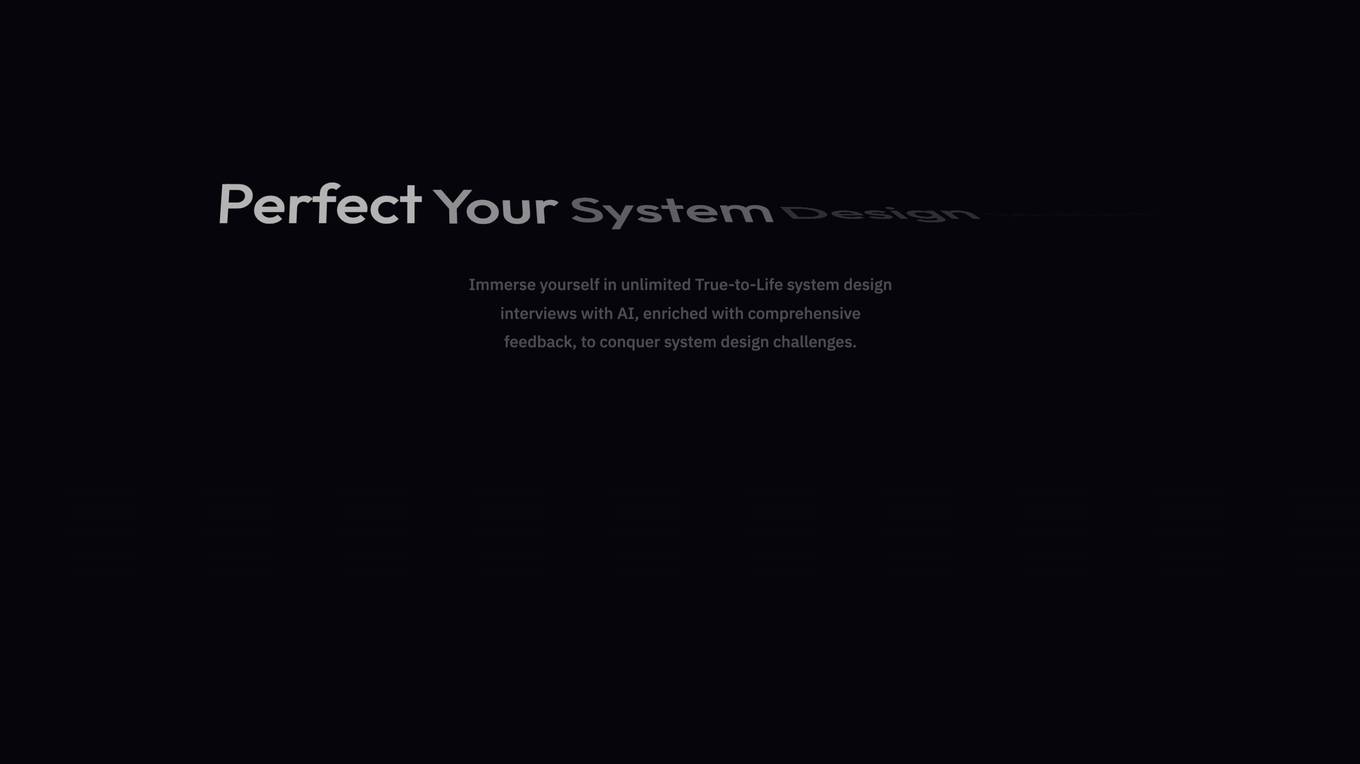
Intervu
Intervu is an AI-powered interview platform that helps users prepare for system design interviews. It offers unlimited True-to-Life system design interviews with AI, enriched with comprehensive feedback, to help users conquer system design challenges.
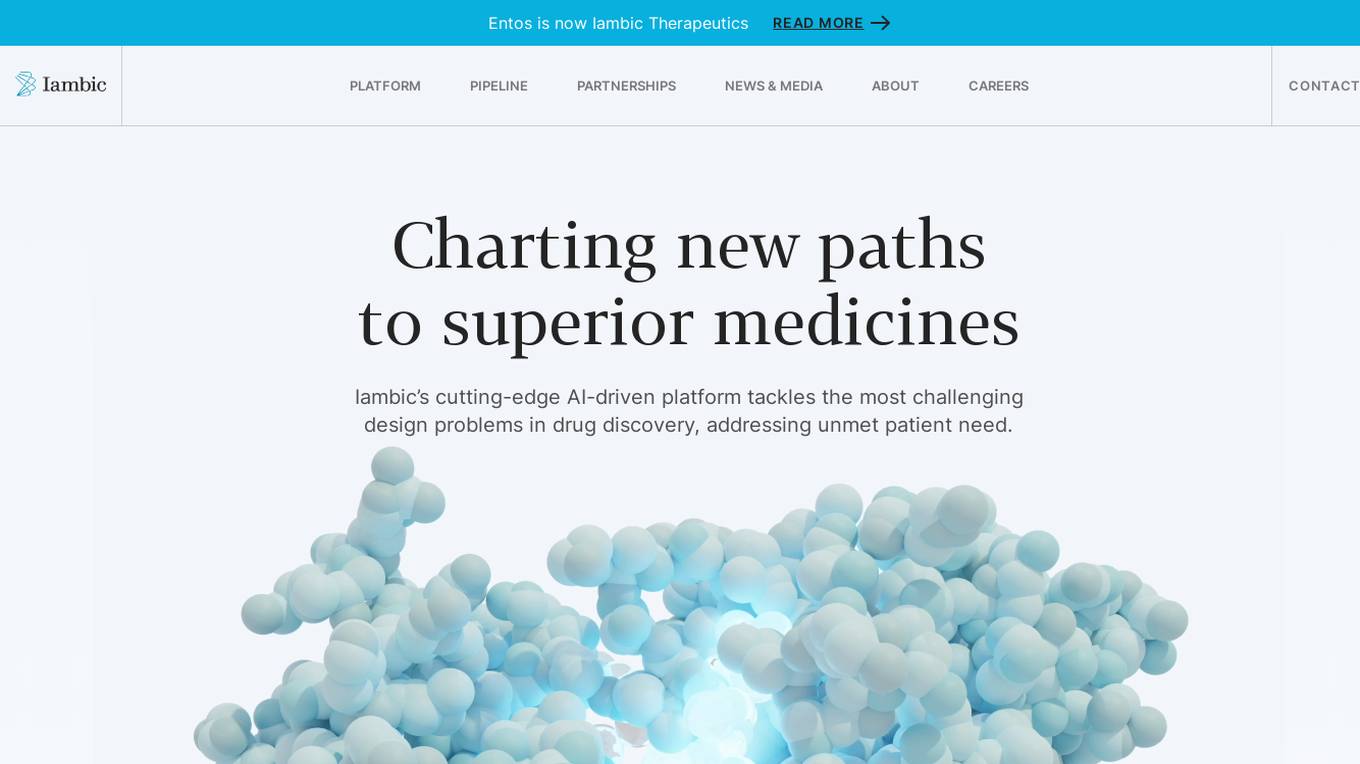
Iambic Therapeutics
Iambic Therapeutics is a cutting-edge AI-driven drug discovery platform that tackles the most challenging design problems in drug discovery, addressing unmet patient need. Its physics-based AI algorithms drive a high-throughput experimental platform, converting new molecular designs to new biological insights each week. Iambic's platform optimizes target product profiles, exploring multiple profiles in parallel to ensure that molecules are designed to solve the right problems in disease biology. It also optimizes drug candidates, deeply exploring chemical space to reveal novel mechanisms of action and deliver diverse high-quality leads.
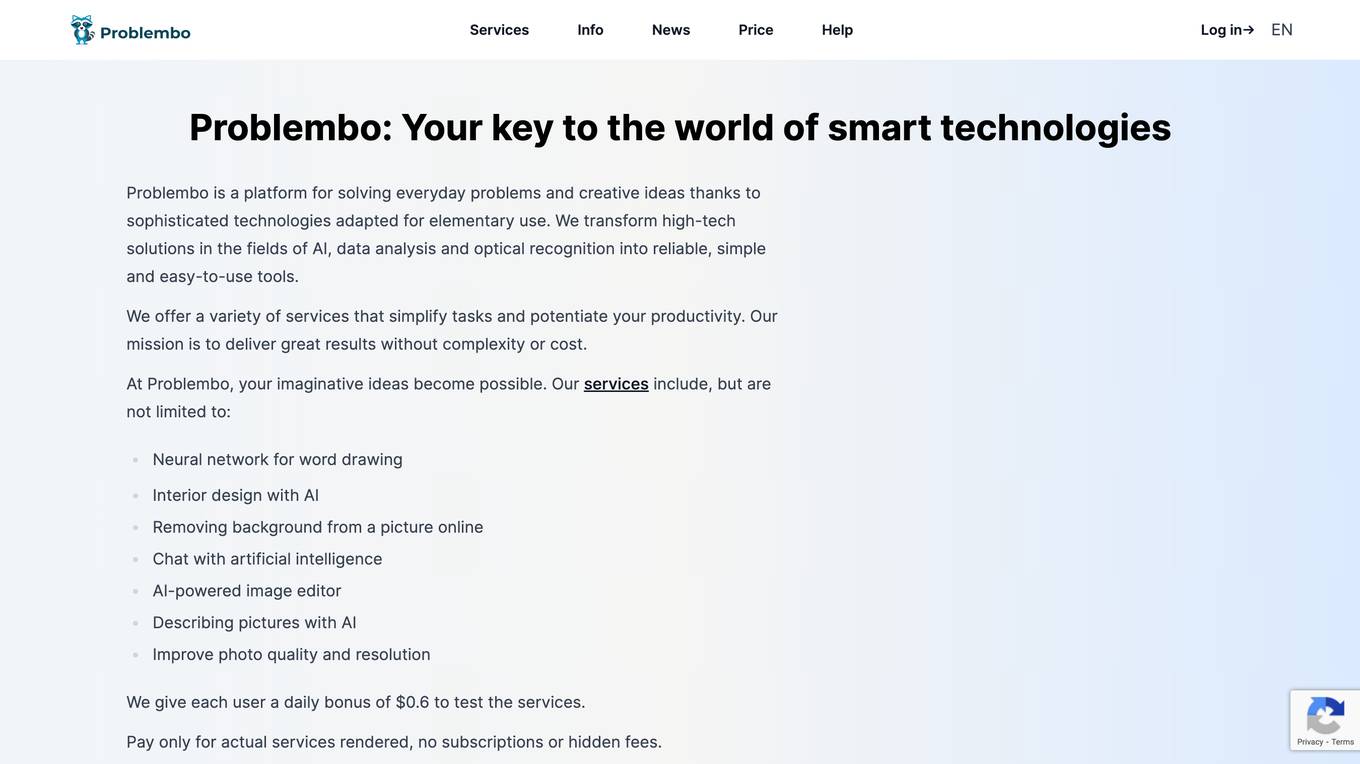
Problembo
Problembo is a platform that leverages AI and other advanced technologies to provide user-friendly tools for solving everyday problems and fostering creativity. It offers a range of services that simplify tasks and enhance productivity, including neural network for word drawing, AI-powered interior design, background removal from images, AI-powered chat, image editing, and image description. Problembo aims to make complex technologies accessible and affordable, empowering users to bring their ideas to life without the need for technical expertise or high costs.
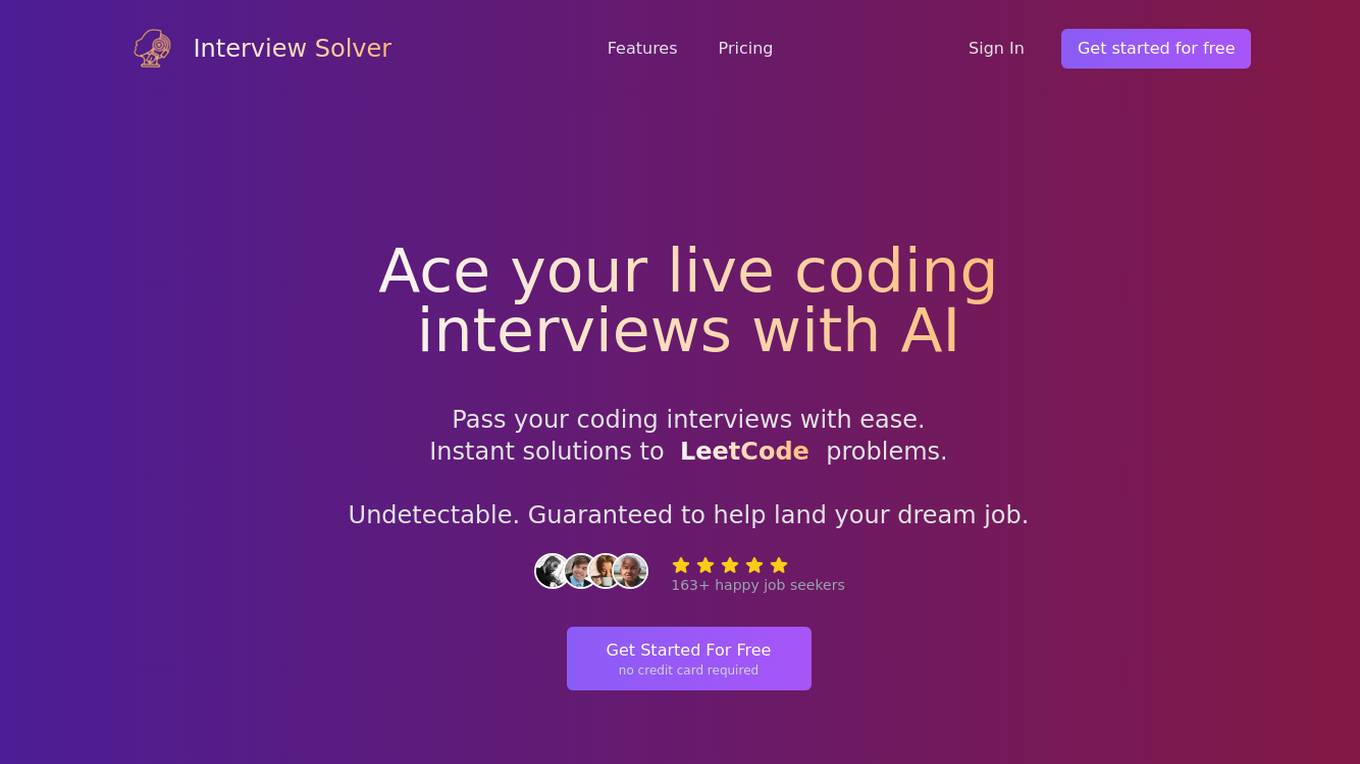
Interview Solver
Interview Solver is a desktop application that acts as your copilot during coding interviews, providing instant solutions to LeetCode problems and system design questions. It features screengrabbing capabilities, one-shot solutions, query selected text functionality, global hotkeys, and syntax highlighting for all major languages. Interview Solver is designed to give you an AI advantage during live interviews, helping you land your dream job.
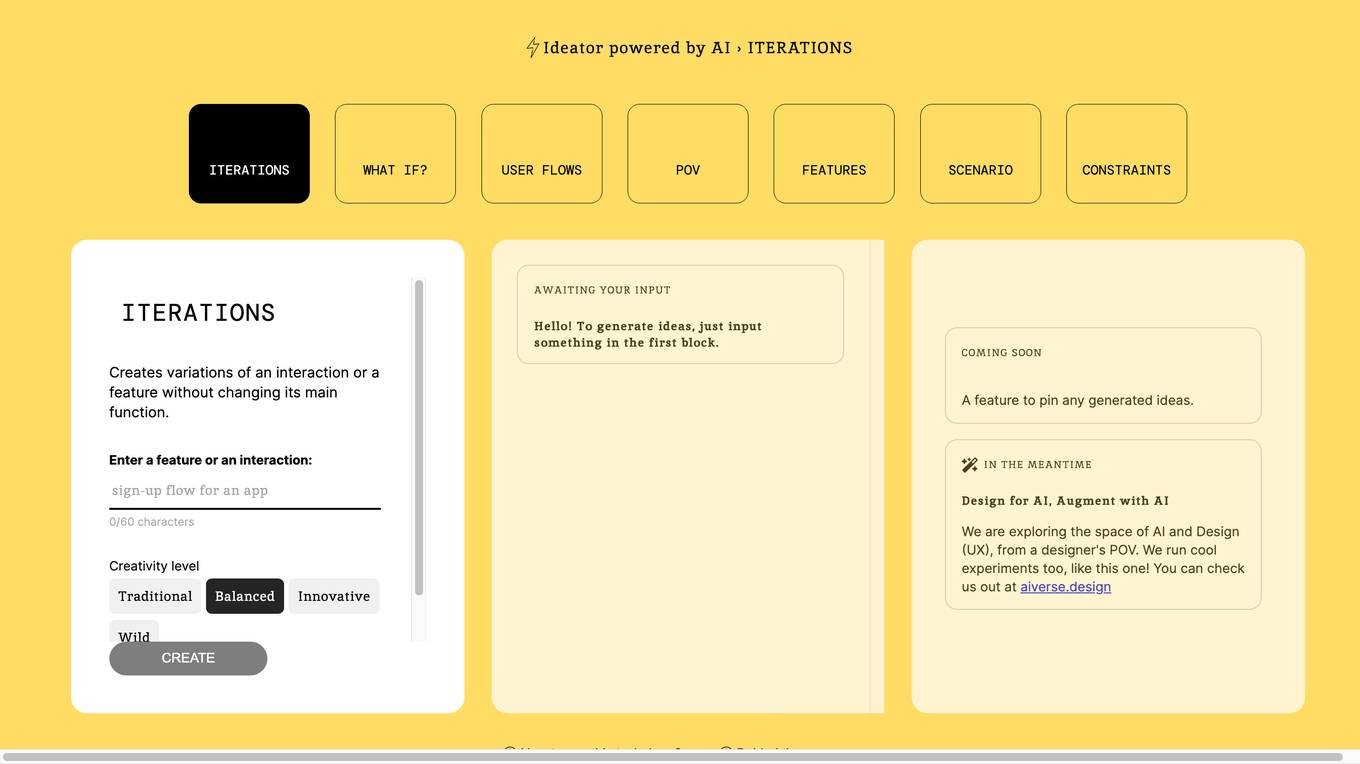
Ideator
Ideator is an AI-powered tool that helps designers and innovators generate creative ideas. It allows users to input a feature or interaction and then generates different variations of how it could be used, while keeping its main job the same. Ideator is still under development, but it has the potential to be a valuable tool for designers and innovators who are looking for new and creative ways to solve problems.
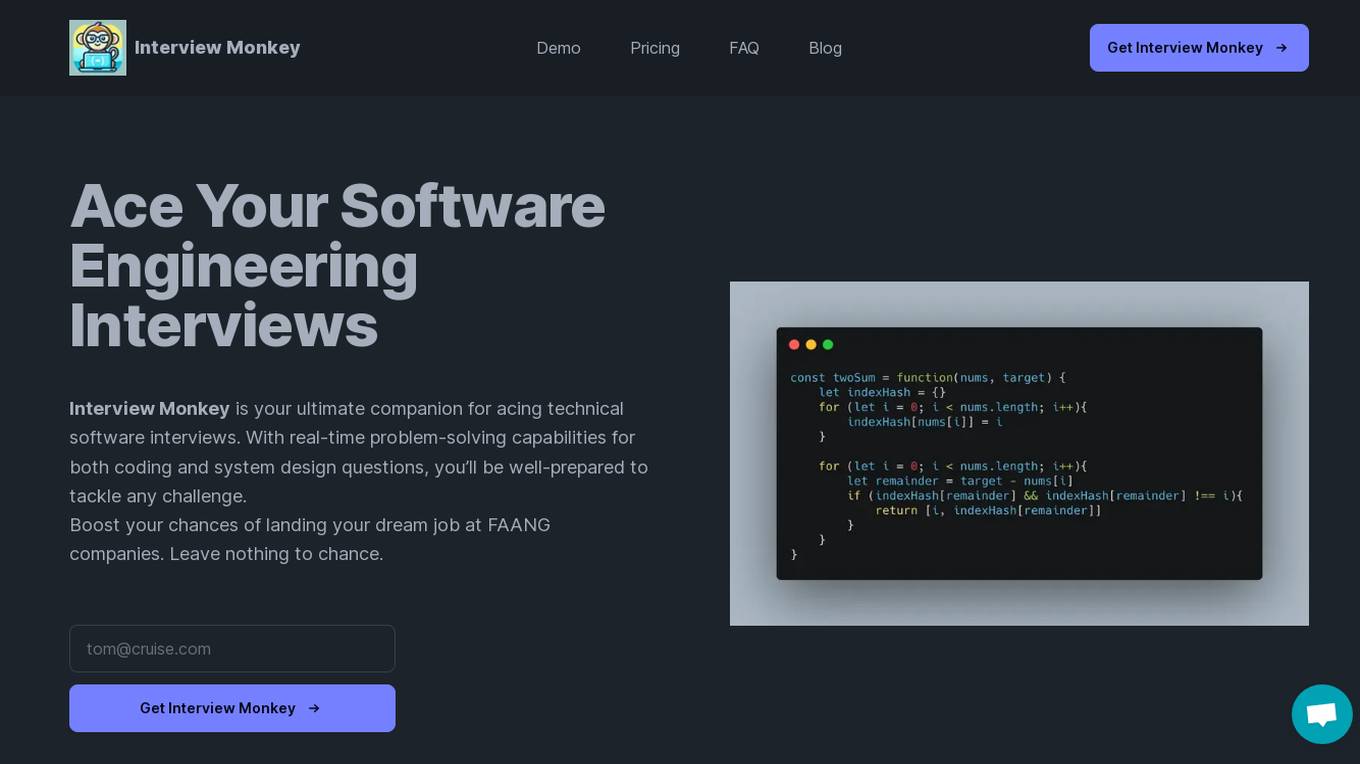
Interview Monkey
Interview Monkey is an AI tool designed to help software engineering candidates ace technical interviews. It offers real-time problem-solving capabilities for coding and system design questions, supporting over 10 coding languages. The tool operates discreetly during screenshare sessions, provides solutions without typing, and is tailored for various interview types. Interview Monkey aims to boost candidates' confidence, increase hiring chances, and upgrade their roles and salaries in the competitive job market.

BugFree.ai
BugFree.ai is an AI-powered platform designed to help users practice system design and behavior interviews, similar to Leetcode. The platform offers a range of features to assist users in preparing for technical interviews, including mock interviews, real-time feedback, and personalized study plans. With BugFree.ai, users can improve their problem-solving skills and gain confidence in tackling complex interview questions.
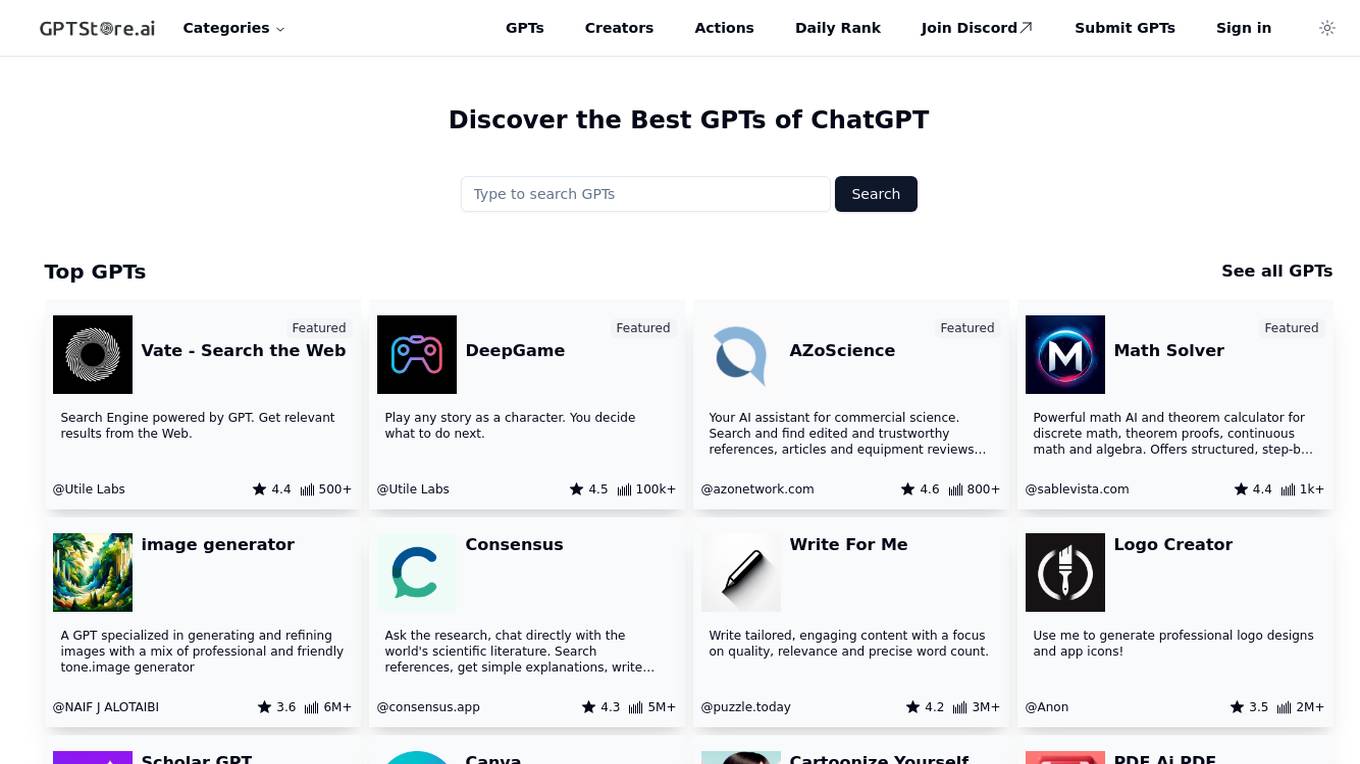
GPTStore.AI
GPTStore.AI is a platform that showcases a variety of GPTs (Generative Pre-trained Transformers) for different purposes, such as search engines, AI assistants, math solvers, image generators, content writers, and more. Users can explore and discover GPTs developed by various creators to assist them in tasks ranging from generating images to writing tailored content. The platform aims to provide a curated collection of GPTs to help users find the best tools for their specific needs.
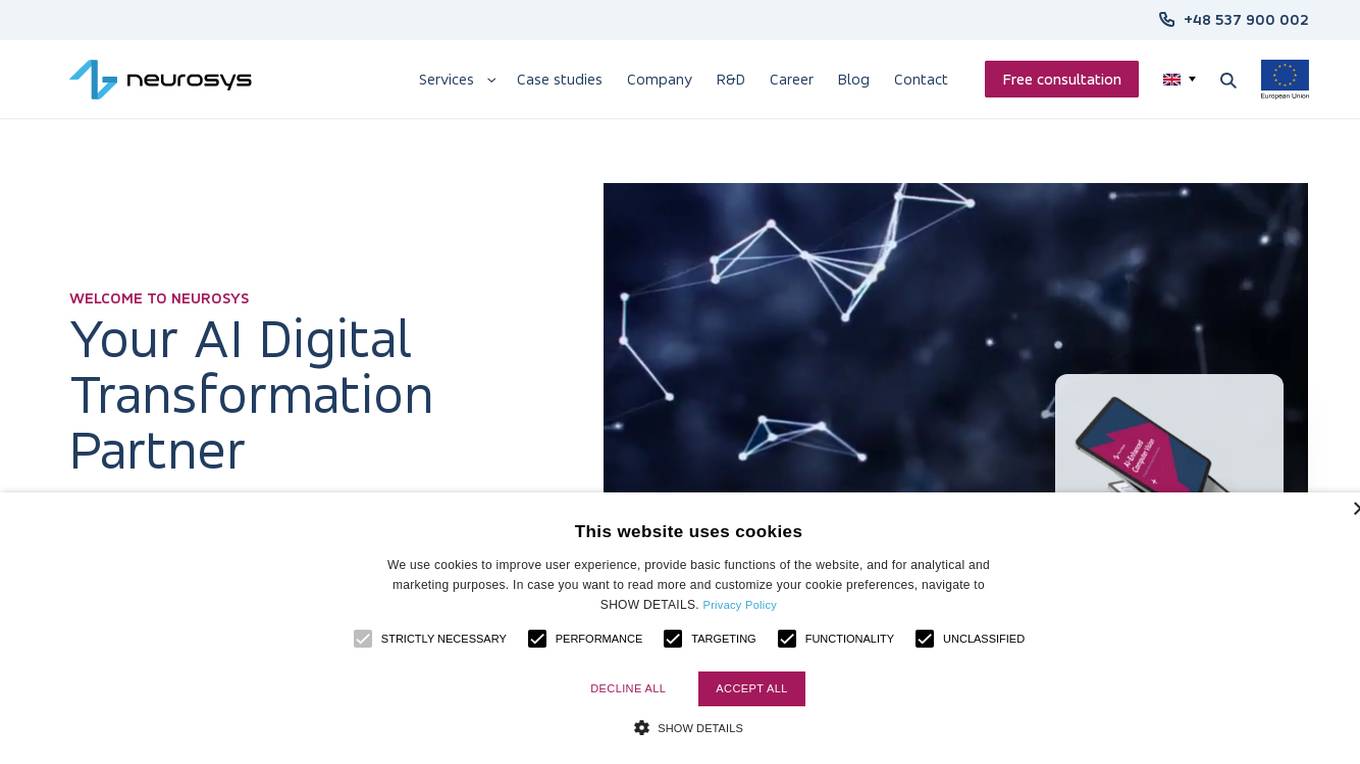
NeuroSYS
NeuroSYS is an AI and IT solutions provider that offers services in Artificial Intelligence, Software Development, Digital Innovation, Product Design, and other related areas. The company specializes in leveraging AI to boost efficiency, drive digital innovation, and design better products for various industries. NeuroSYS also provides services in software development, digital transformation, augmented reality, and data science, among others. With a focus on AI technologies like Machine Learning, Deep Learning, and Large Language Models automation, NeuroSYS aims to support businesses in achieving growth and automation of processes.
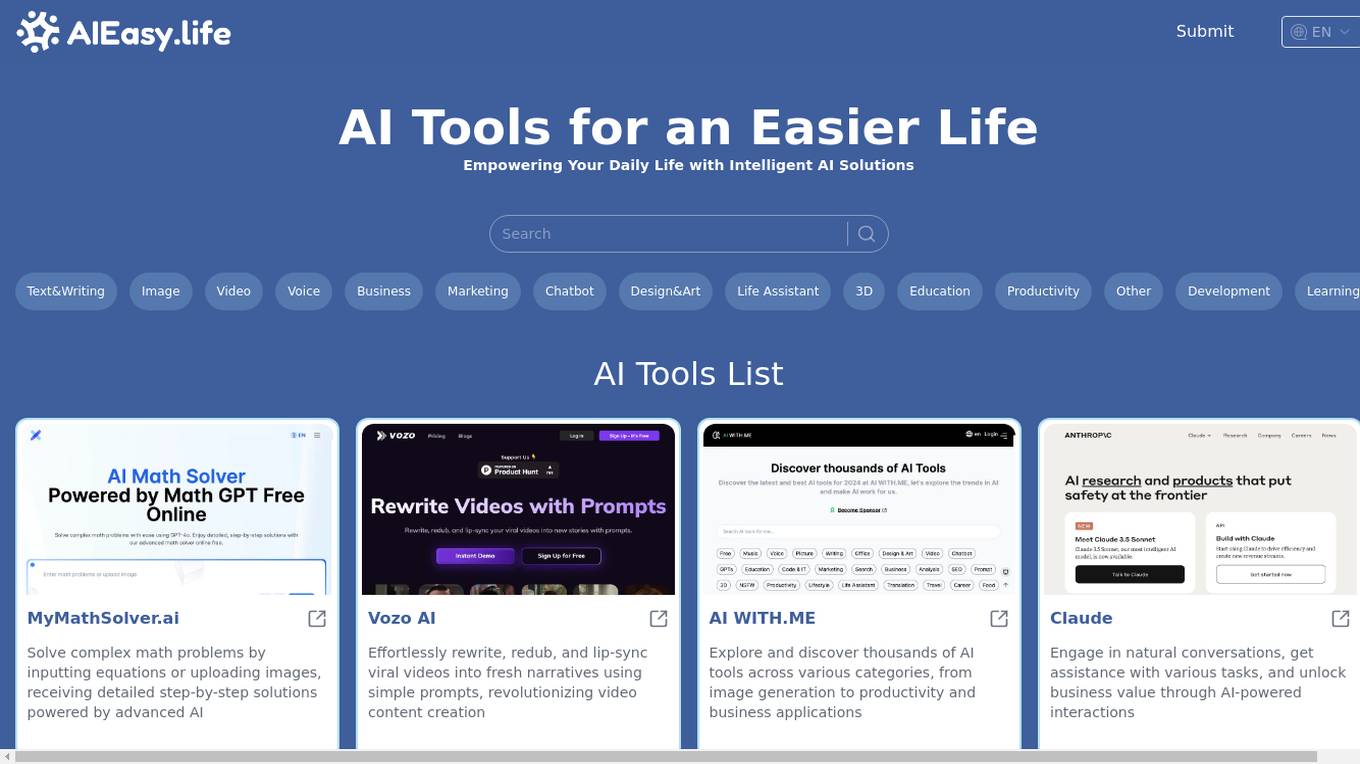
AIEasy.life
AIEasy.life is an AI tools platform designed to empower daily life with intelligent AI solutions. The platform offers a curated directory of various AI tools across categories such as text & writing, image, video, voice, business, marketing, chatbot, design & art, life assistant, 3D, education, productivity, and other development learning AI applications. Users can access tools like MyMathSolver.ai for solving complex math problems, Vozo AI for video content creation, Grammarly for enhancing writing, and many more. AIEasy.life aims to simplify tasks and enhance productivity through the use of advanced AI technology.
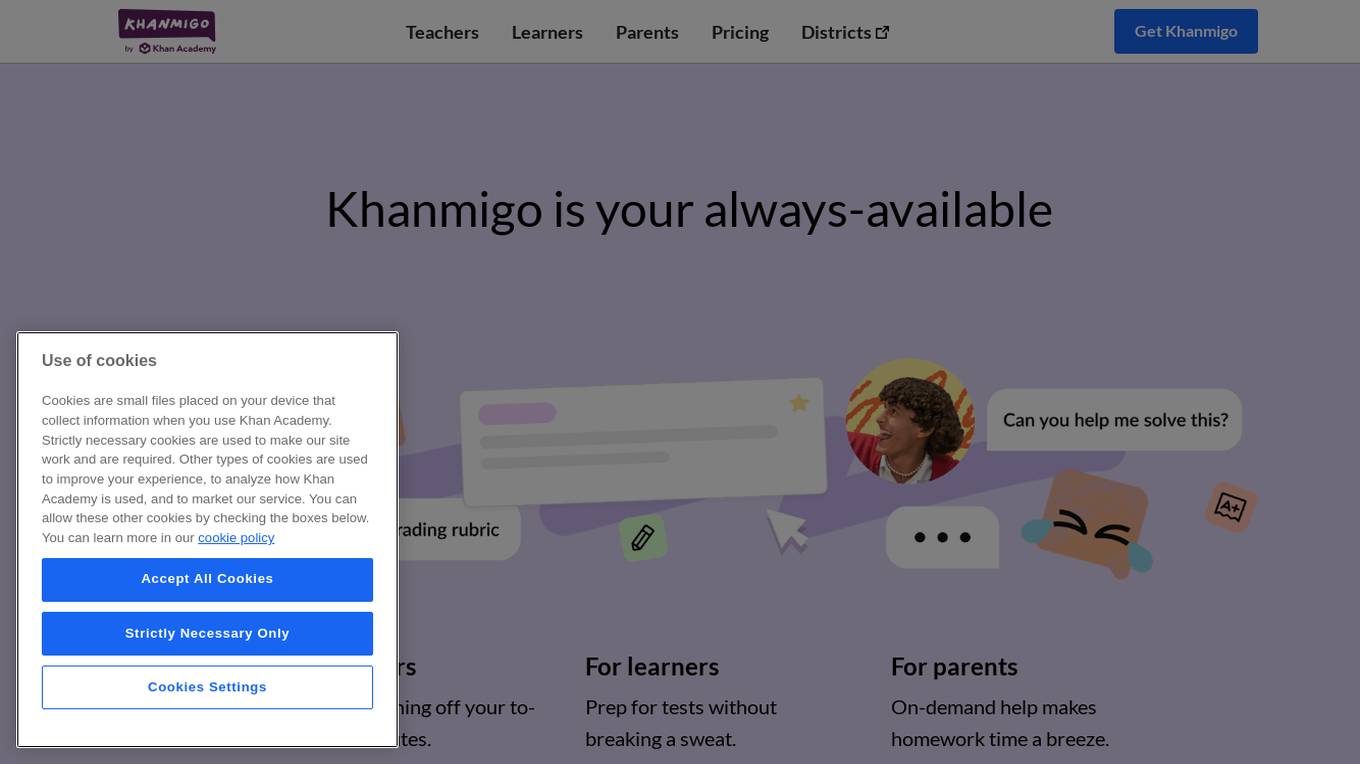
Khanmigo
Khanmigo is an AI-powered teaching assistant and tutor developed by Khan Academy, a trusted education nonprofit. It offers personalized learning experiences for teachers, learners, and parents across various subjects such as math, science, coding, and humanities. Khanmigo aims to revolutionize education by providing on-demand support, engaging content, and ethical design focused on safety and learning. With features tailored for educators and students, Khanmigo simplifies workflows, challenges critical thinking, and guides learners to discover answers independently.
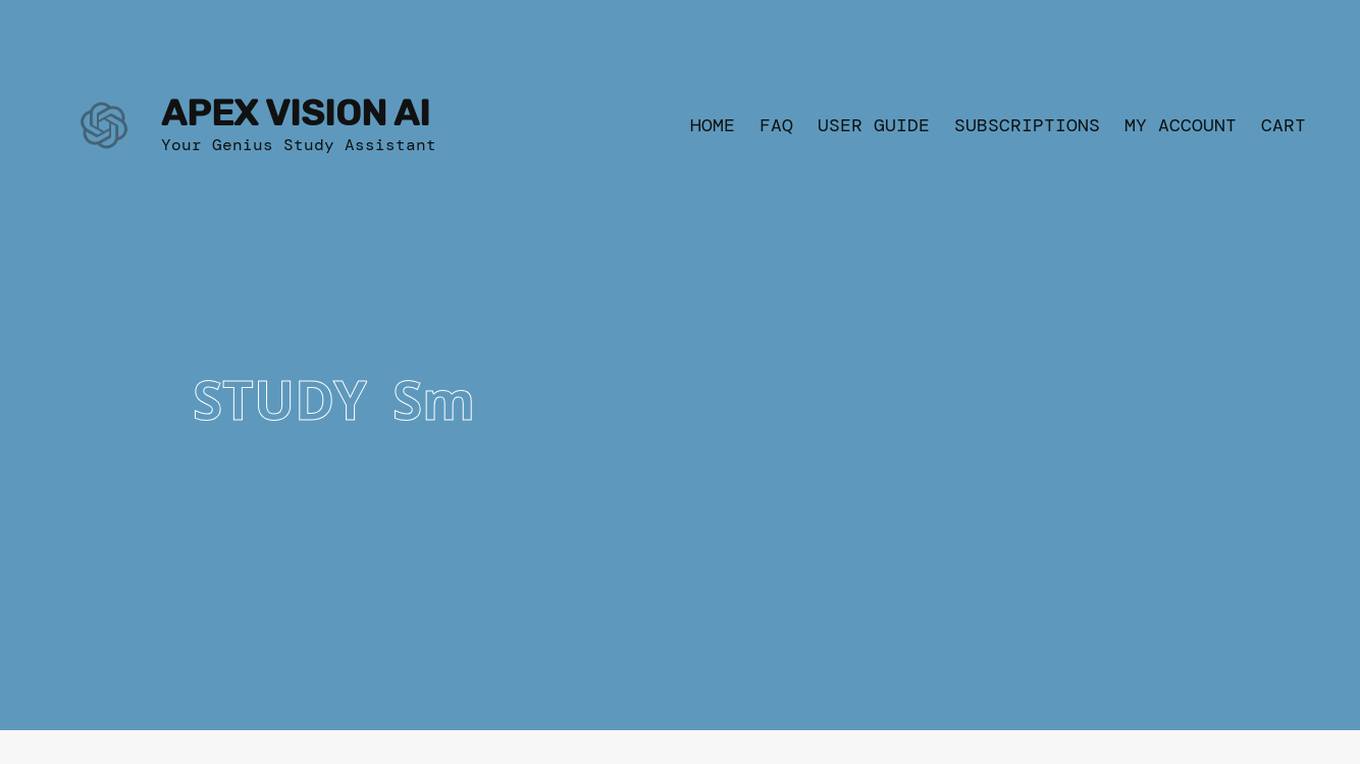
Apex Vision AI
Apex Vision AI is an AI-powered homework helper that provides instant answers and assistance to college students. It utilizes advanced machine learning algorithms to generate accurate answers for multiple-choice homework and quizzes, saving students time and boosting their confidence. The extension seamlessly integrates into the user's browser, offering real-time answers with a click or keyboard shortcut. Its user-friendly interface and intuitive design make it easy for students to use, helping them study smarter and not harder.
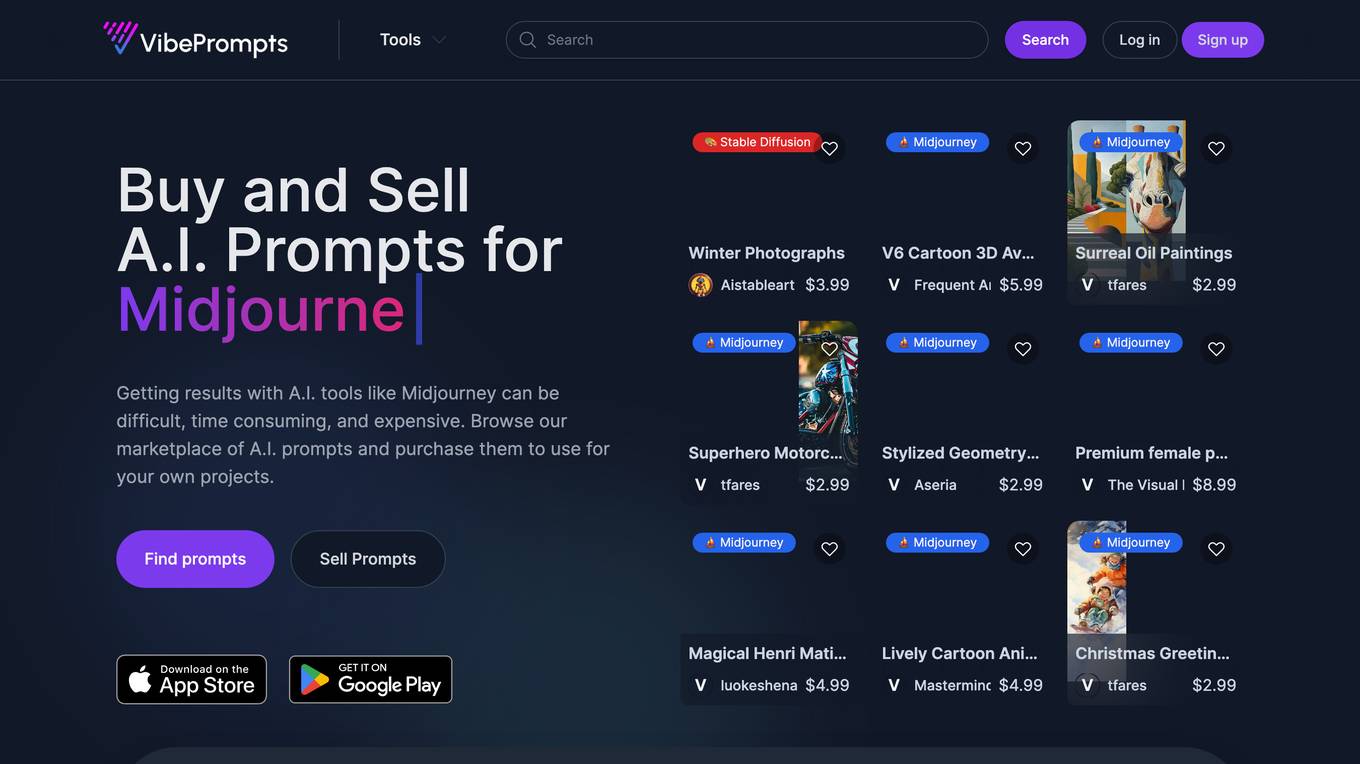
VibePrompts
VibePrompts is an online marketplace where users can buy and sell prompts for various AI models and tools. The platform offers a wide range of prompts tailored to different niches, including art and illustrations, logos and icons, graphics and design, productivity and writing, marketing and business, photography, games and 3D. Users can browse through the collection of prompts, select and customize them to fit their specific requirements, and then activate and engage them in their desired application or platform.
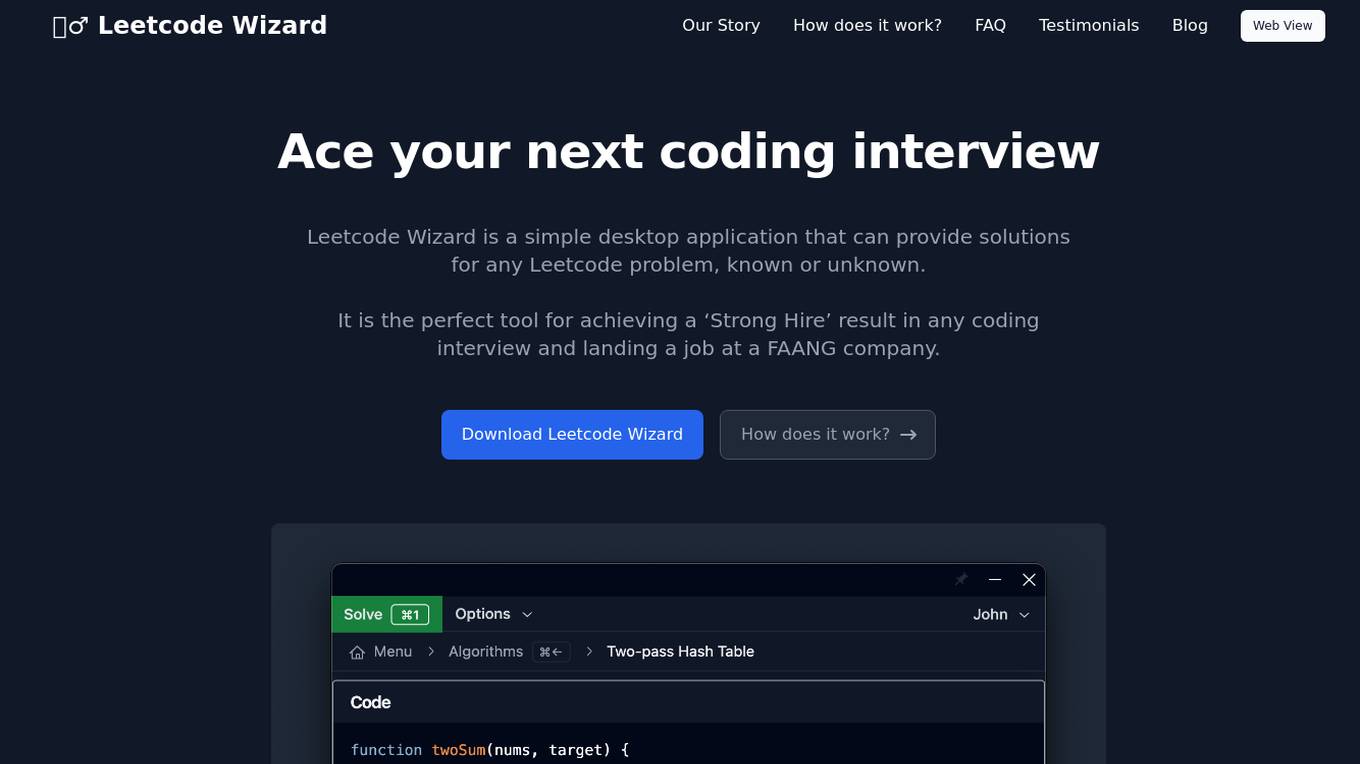
Leetcode Wizard
Leetcode Wizard is a desktop application designed to assist users in coding interviews by providing solutions for any Leetcode problem, known or unknown. It aims to help users achieve success in coding interviews, particularly at top tech companies like FAANG. The application uses AI to analyze coding problems, suggest algorithms, generate code output, and provide a complexity analysis. Leetcode Wizard is built with a privacy-first mindset, ensuring undetectable operation during coding interviews.

idmark
idmark is an AI tool designed to help entrepreneurs solve their problems by delegating and automating tasks using various AI applications. The platform aims to provide users with more free time, better sleep, increased productivity, and overall happiness by leveraging the power of artificial intelligence. With features like productivity tools for marketing, design, sales, and product management, idmark offers a comprehensive solution for streamlining business operations and enhancing efficiency. Users can access the platform on both computers and mobile devices, making productivity management accessible anytime, anywhere. The tool is user-friendly and comes with a 7-day unconditional money-back guarantee, ensuring a risk-free experience for users.
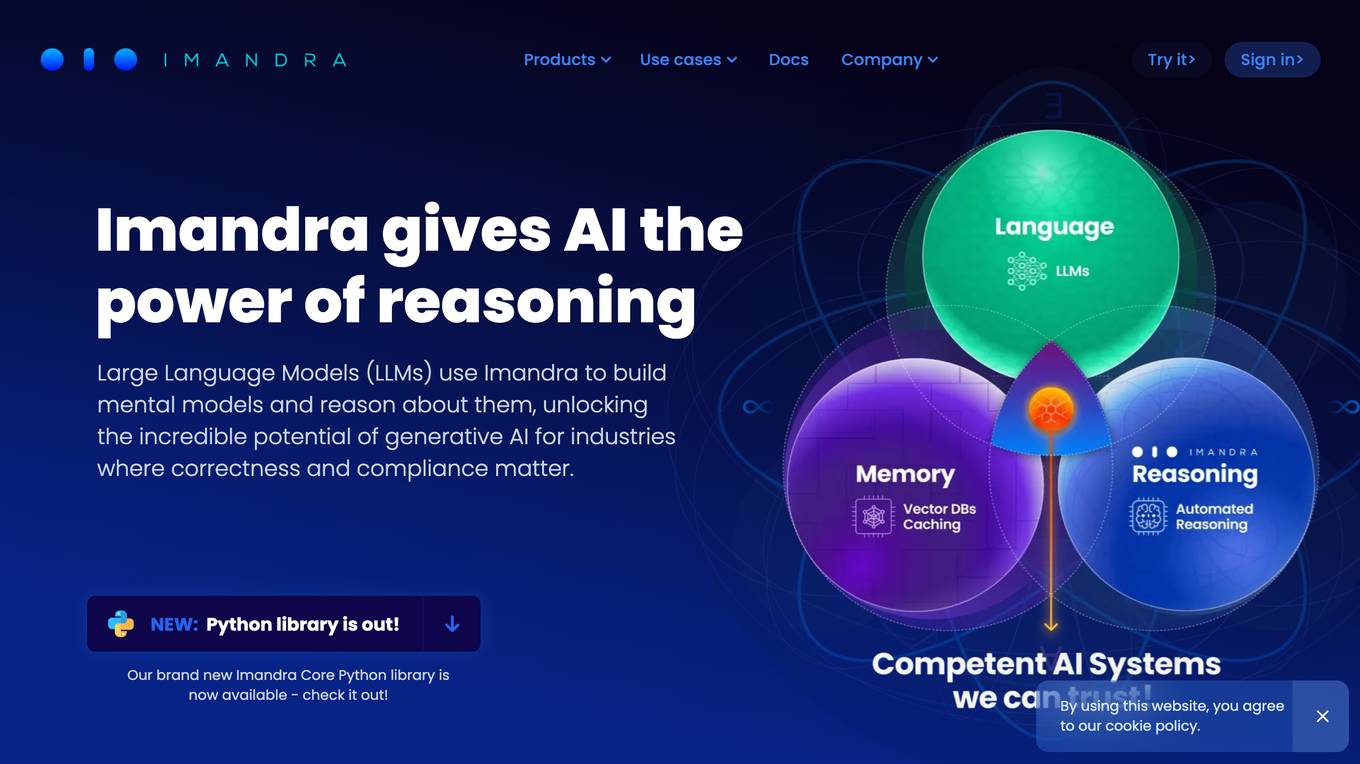
Imandra
Imandra is a company that provides automated logical reasoning for Large Language Models (LLMs). Imandra's technology allows LLMs to build mental models and reason about them, unlocking the potential of generative AI for industries where correctness and compliance matter. Imandra's platform is used by leading financial firms, the US Air Force, and DARPA.
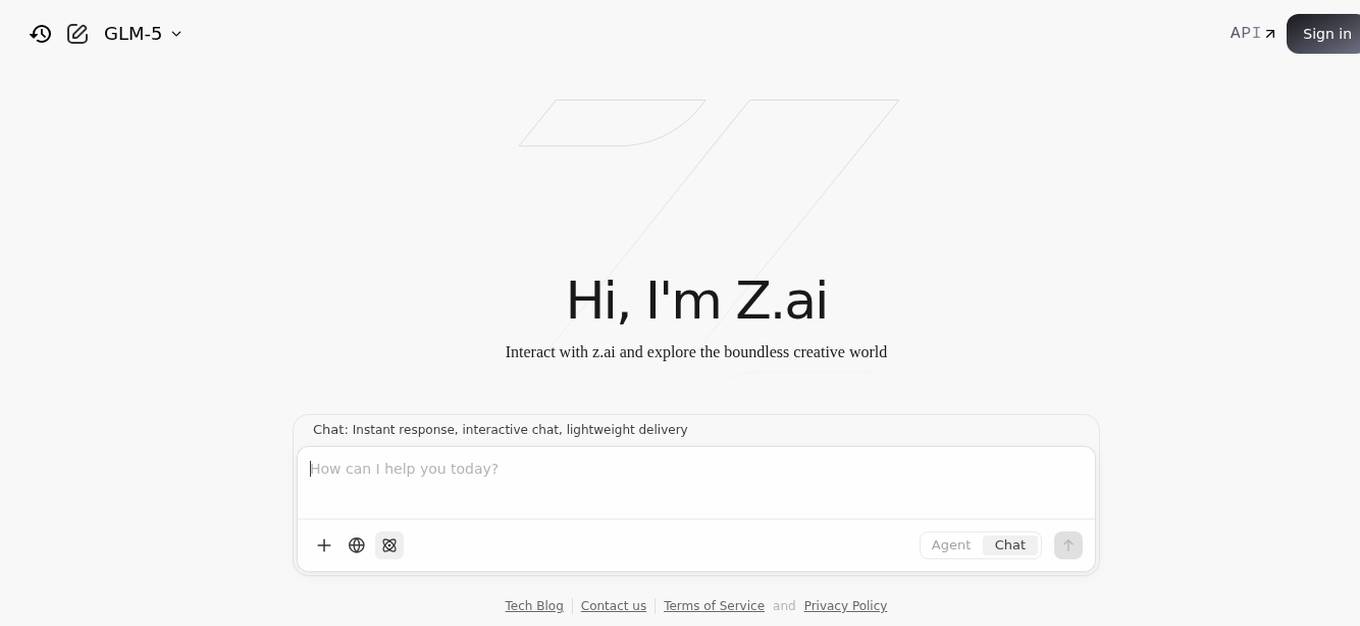
Z.ai
Z.ai is a free AI chatbot and agent powered by GLM-5 and GLM-4.7. It provides users with an interactive platform to engage with AI technology for various purposes. The chatbot is designed to assist users in answering questions, providing information, and offering personalized recommendations. With advanced algorithms and machine learning capabilities, Z.ai aims to enhance user experience and streamline communication processes.
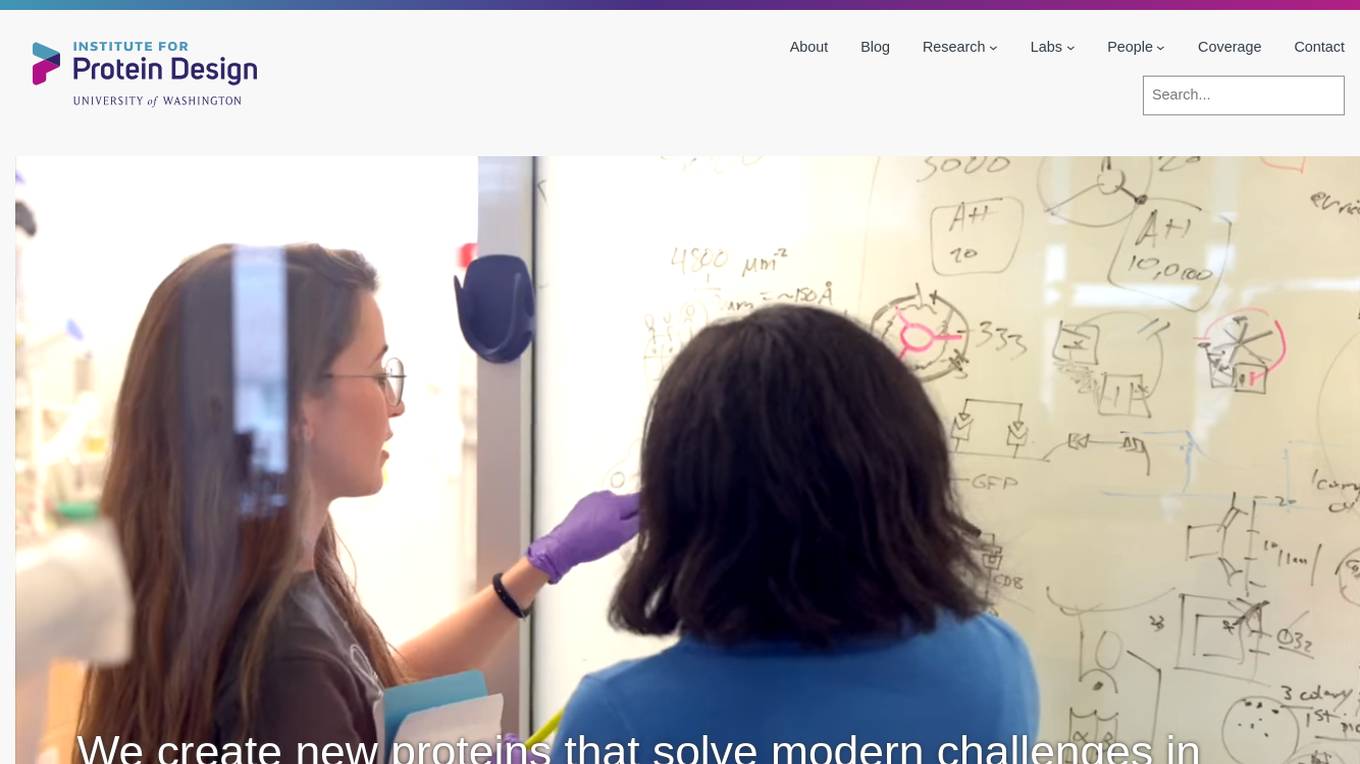
Institute for Protein Design
The Institute for Protein Design is a research institute at the University of Washington that uses computational design to create new proteins that solve modern challenges in medicine, technology, and sustainability. The institute's research focuses on developing new protein therapeutics, vaccines, drug delivery systems, biological devices, self-assembling nanomaterials, and bioactive peptides. The institute also has a strong commitment to responsible AI development and has developed a set of principles to guide its use of AI in research.
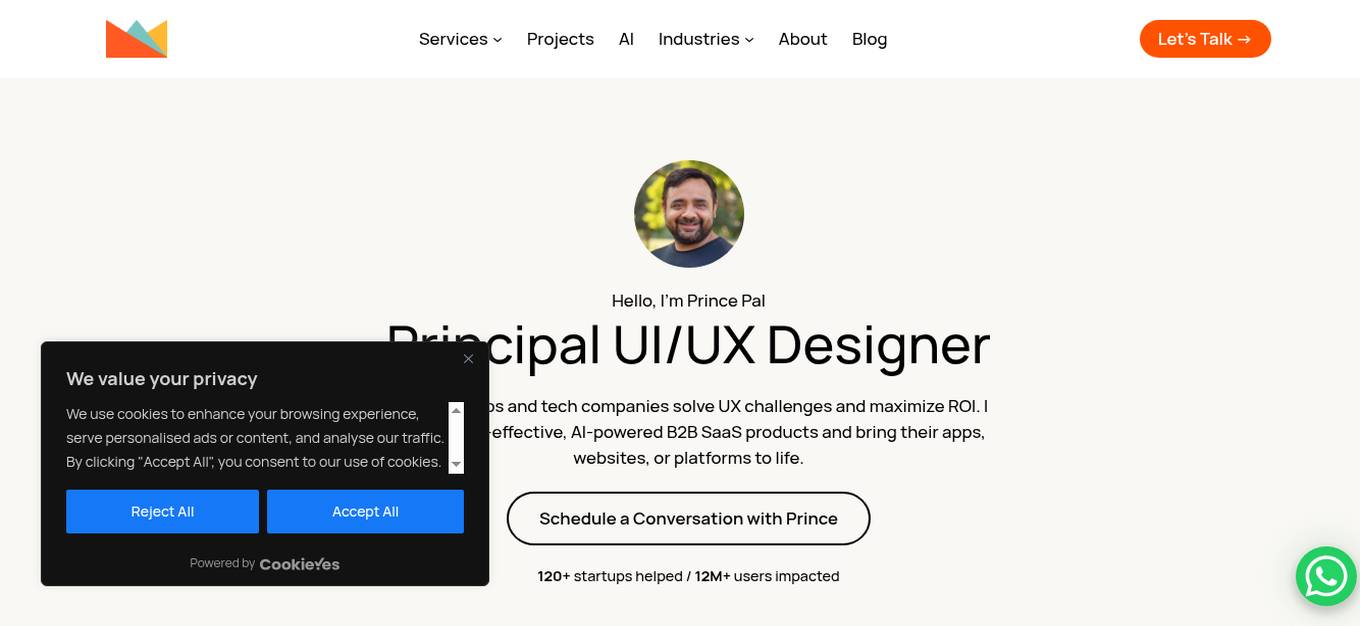
Prince Pal UI/UX Design
The website is a platform for Prince Pal, a Principal UI/UX Designer, offering AI Product Designer services for B2B and B2C SaaS products. Prince Pal helps startups and tech companies solve UX challenges, maximize ROI, and design cost-effective, AI-powered products. The site showcases Prince Pal's experience in product design, SaaS branding, design systems, and UI/UX audits. It also features Prince Pal's portfolio, industry expertise in Fintech, SaaS, and Healthcare, as well as services like UI/UX audit, no-code development, and brand & product strategy packages. The site highlights the importance of strong design in attracting investors, increasing revenue, and enhancing user experience.
0 - Open Source AI Tools
20 - OpenAI Gpts

Design Coach Pro
Friendly, casual coach for design skills & growth, avoiding negativity and bias.
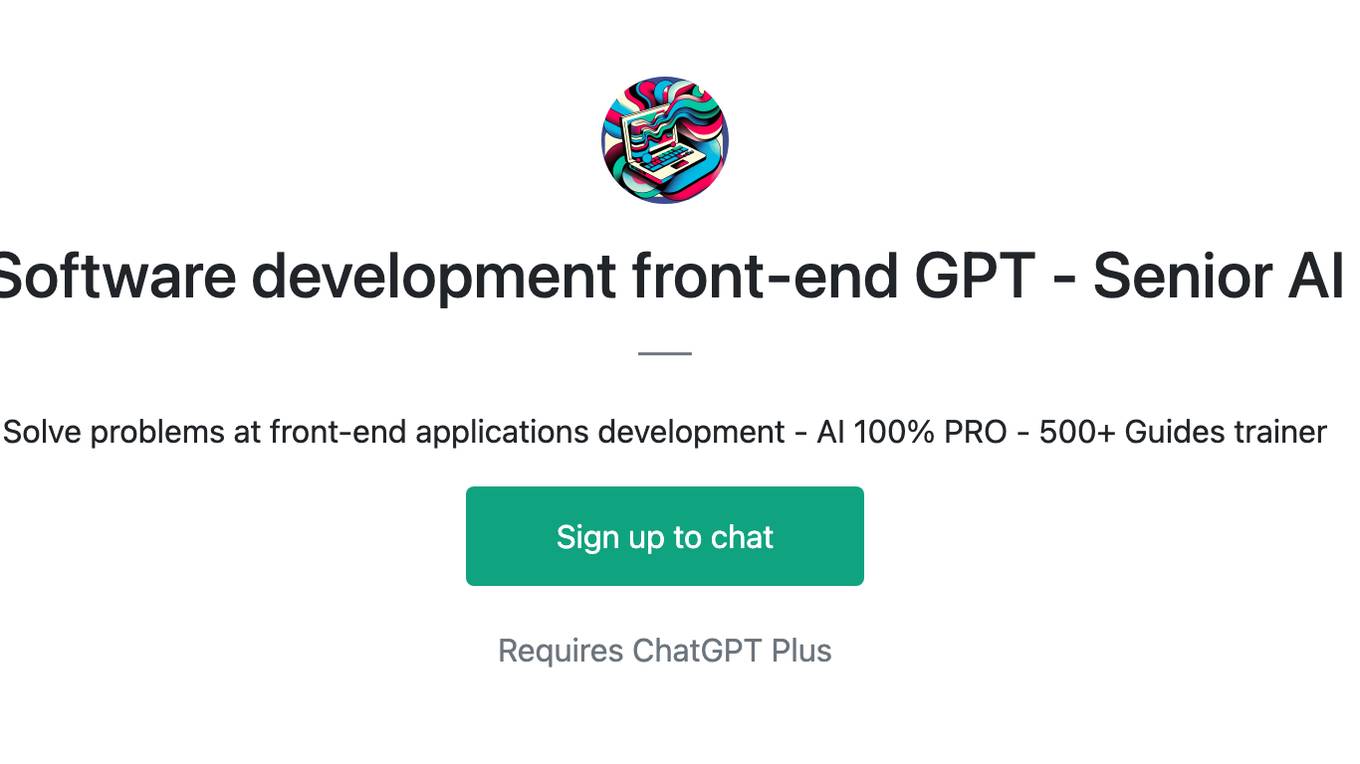
Software development front-end GPT - Senior AI
Solve problems at front-end applications development - AI 100% PRO - 500+ Guides trainer
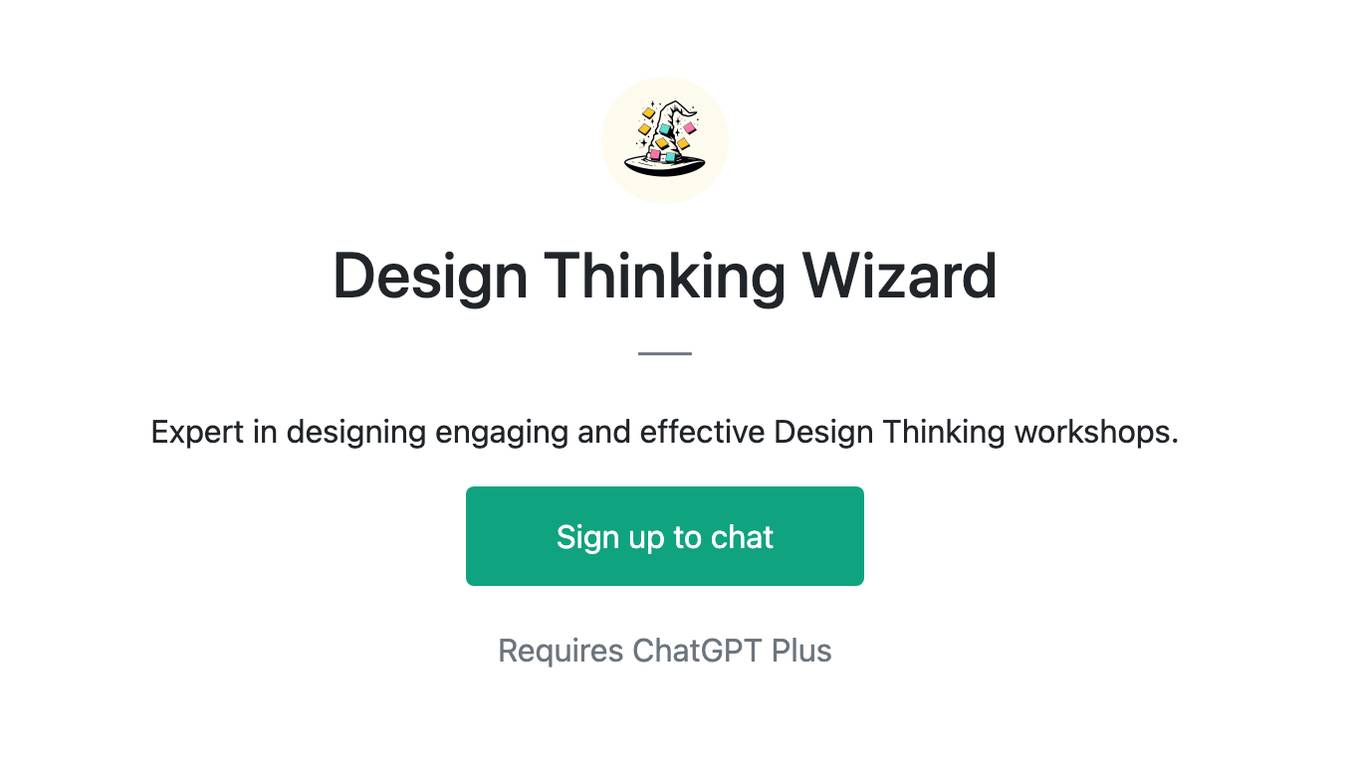
Design Thinking Wizard
Expert in designing engaging and effective Design Thinking workshops.
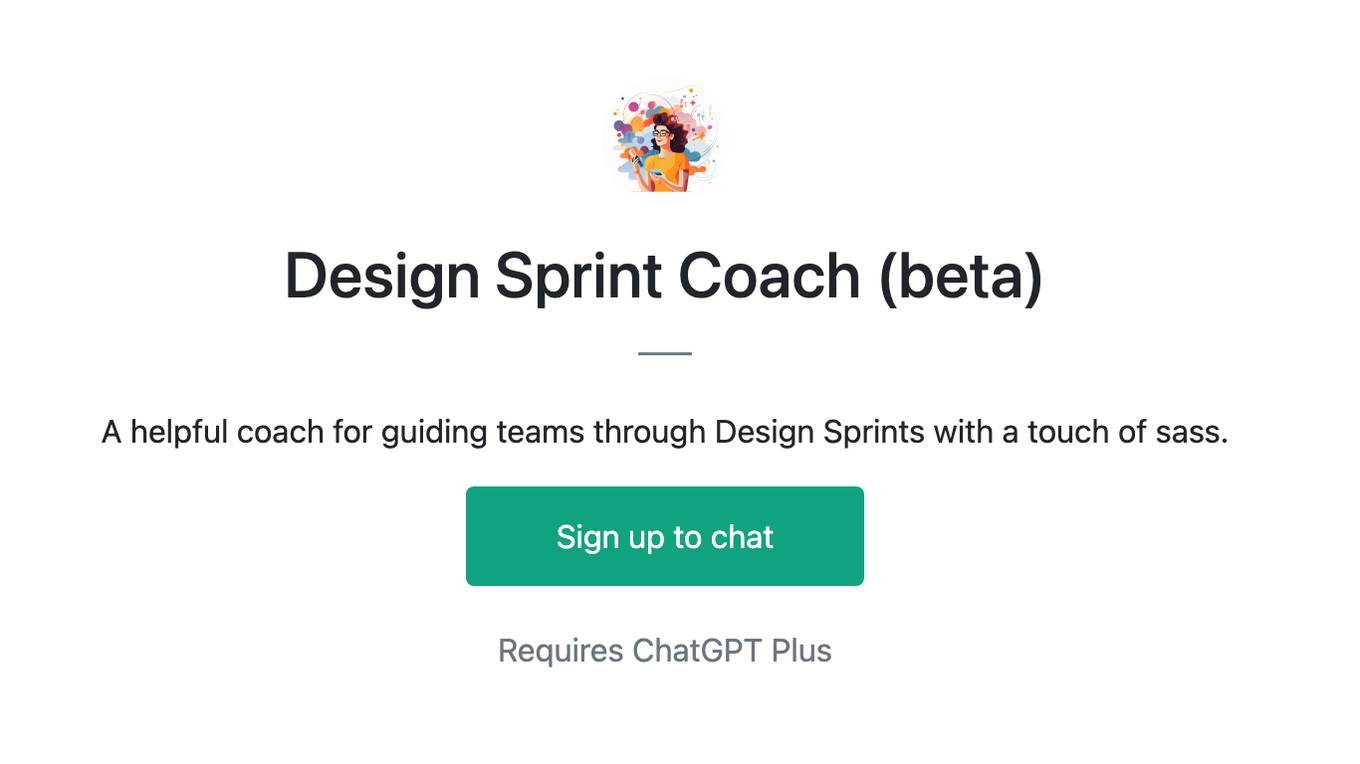
Design Sprint Coach (beta)
A helpful coach for guiding teams through Design Sprints with a touch of sass.
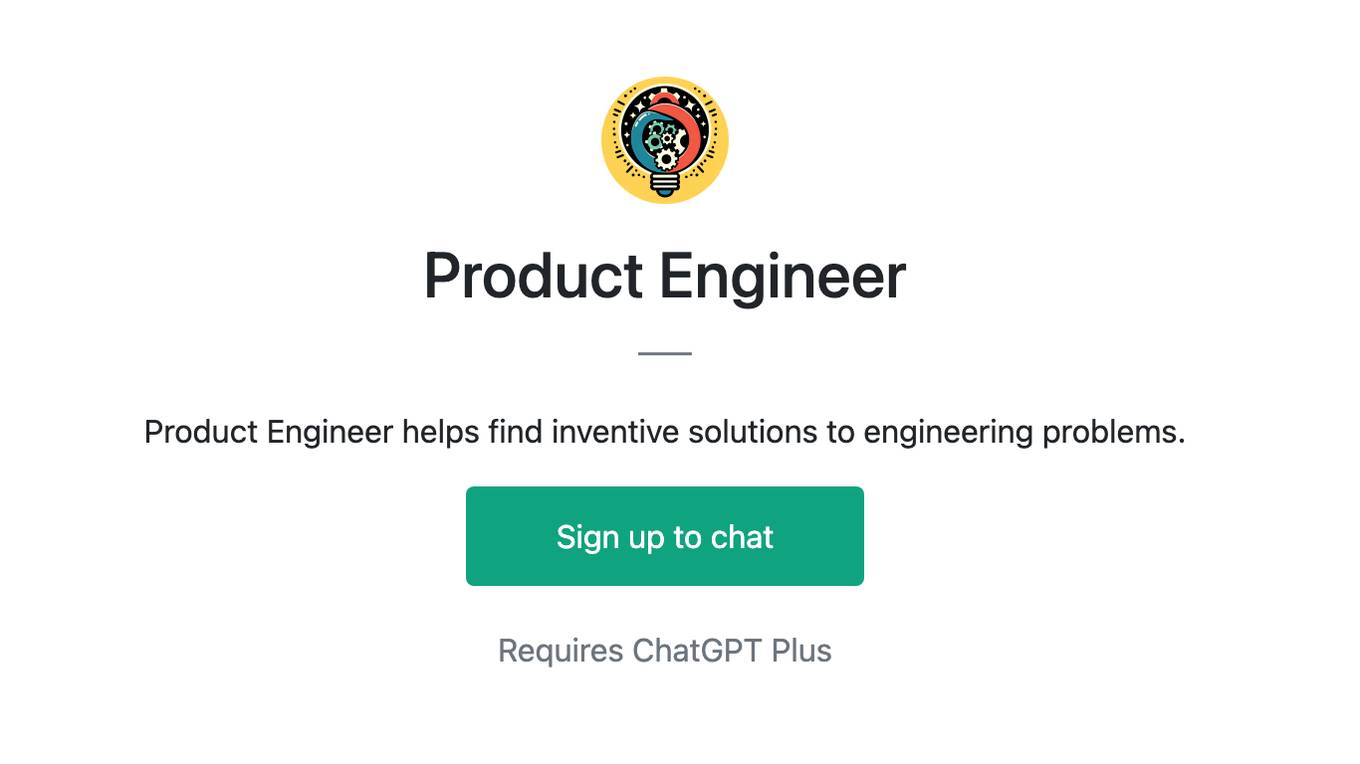
Product Engineer
Product Engineer helps find inventive solutions to engineering problems.
Physics Pal
Solves Numericals in Physics, provides ideas to design an Internal Assessment (Physics Projects) and Extended Essays for IBDP Curriculum
![[GER] Professor Ingenieur 🧠⚙️🔌 Screenshot](/screenshots_gpts/g-3TXDszv9h.jpg)
[GER] Professor Ingenieur 🧠⚙️🔌
Professioneller, lockerer Ingenieursexperte, nutzt Fachwörter mit Erklärungen und löst Aufgaben
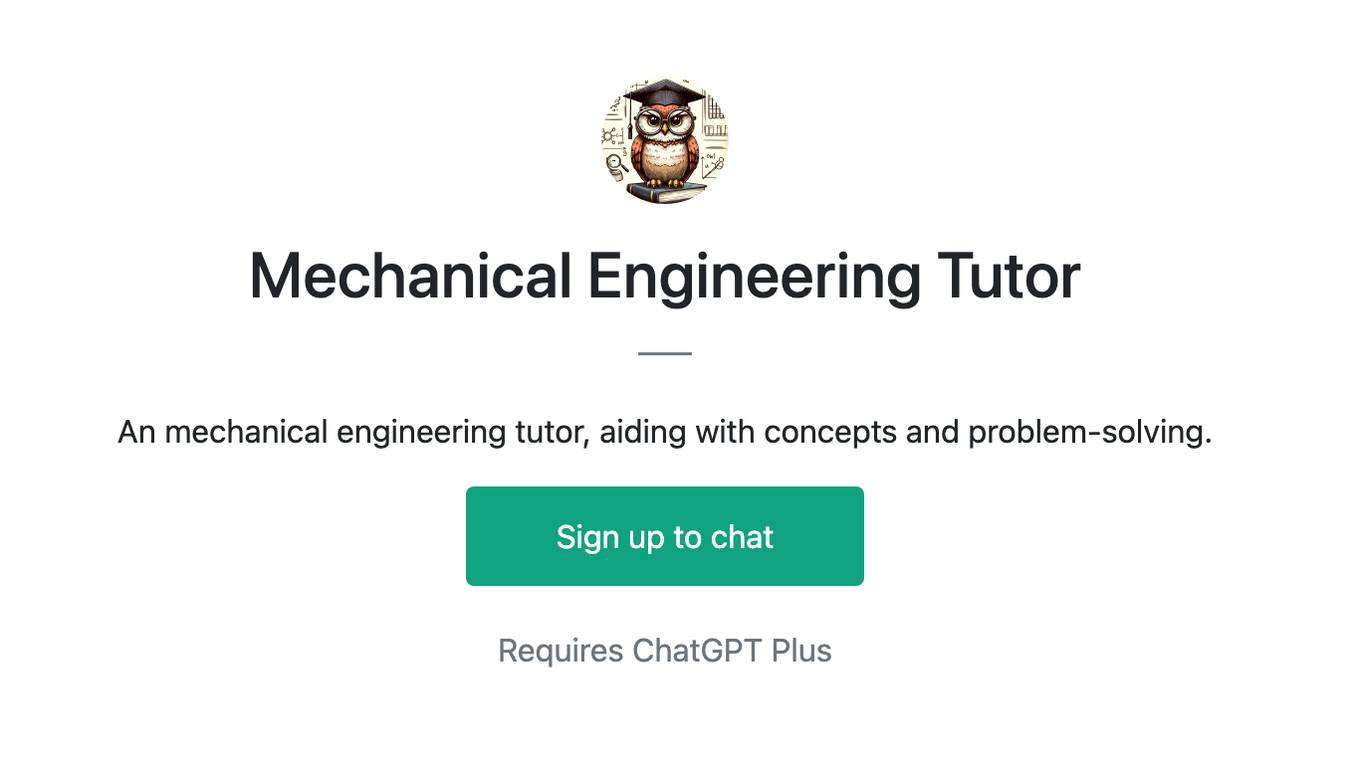
Mechanical Engineering Tutor
An mechanical engineering tutor, aiding with concepts and problem-solving.
